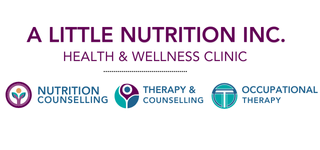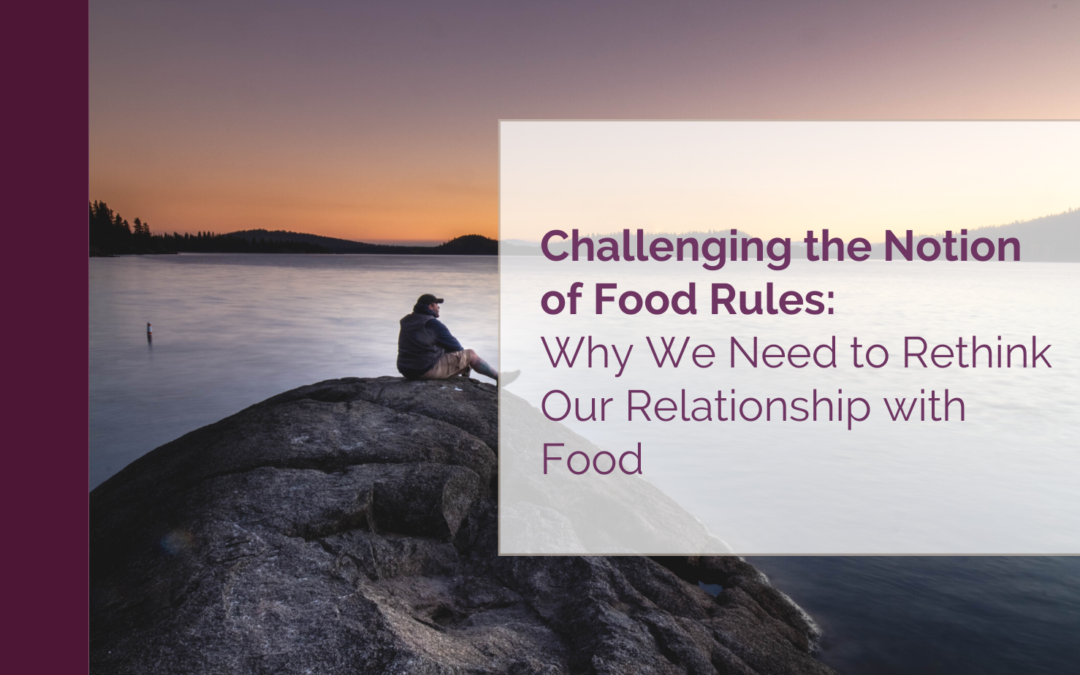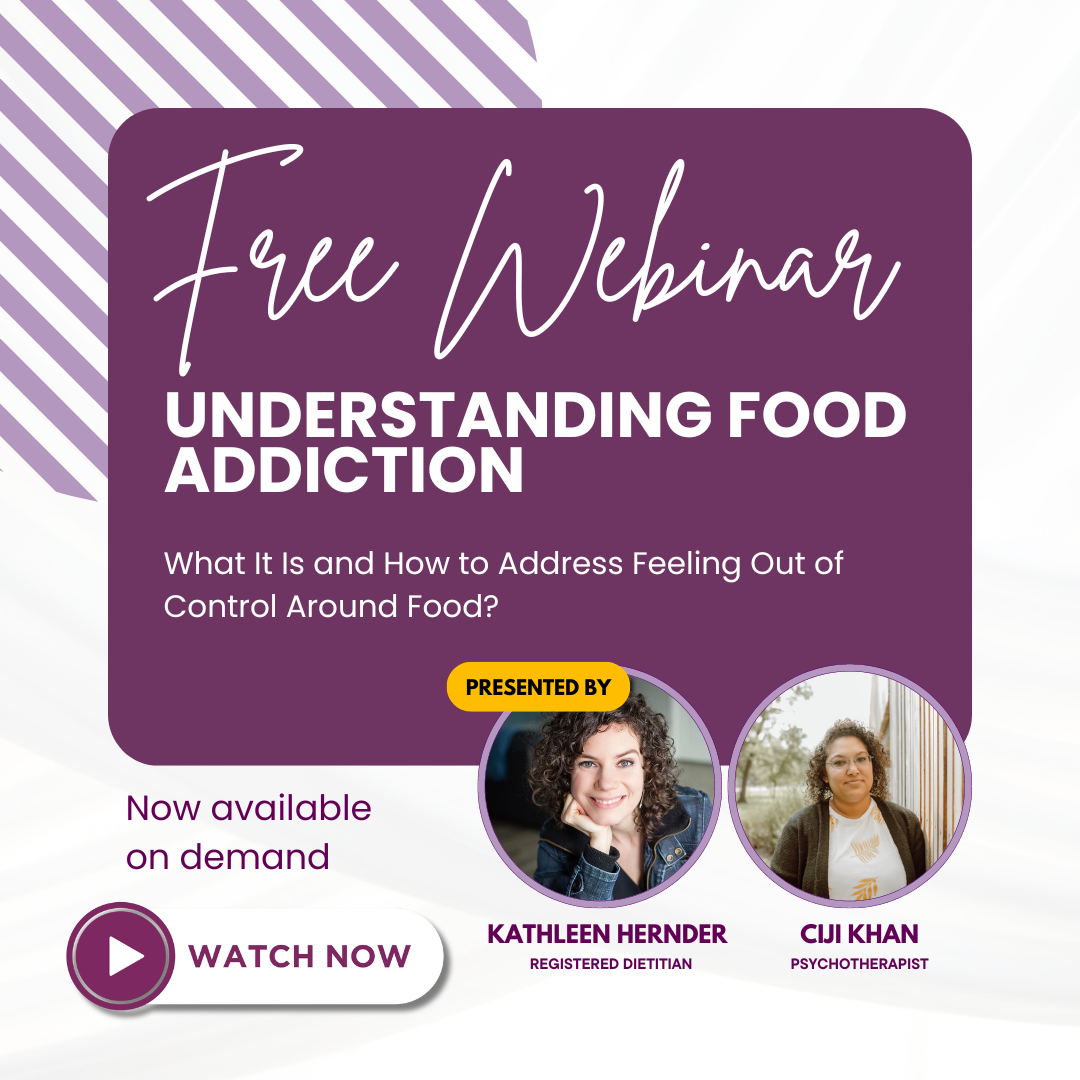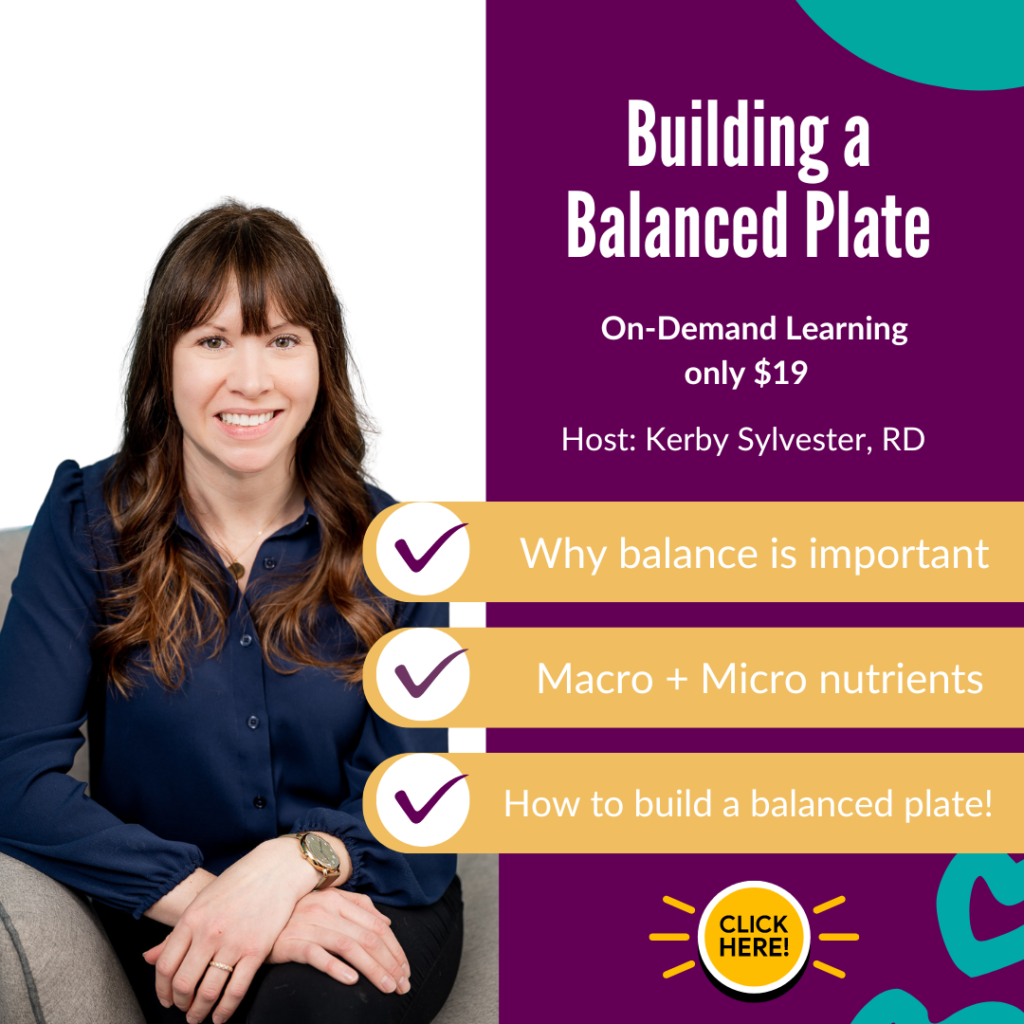From skipping dessert to avoiding late-night snacking, we’ve all got our own set of food rules. But maybe it’s time to reassess their value. Are these rules actually healthy or just perpetuating the cycle of guilt and shame around food? It’s time to reconsider the way we approach our relationship with food and start nourishing our bodies from a place of self-love and respect rather than restriction and deprivation.
What are food rules?
Food rules refer to the set of guidelines we impose on ourselves regarding our food intake. Although some food rules may seem harmless, others can be harmful and even trigger eating disorders.
Common food rules include skipping dessert, avoiding food after a specific time, eliminating added sugars, or limiting carbs. Some may even believe that higher-calorie foods should be “earned” by exercising beforehand.
Following strict food rules can result in even more restrictions and cause you to be preoccupied with thoughts of food. Additionally, rigid food rules can initiate a binge eating cycle for some people. The pressure of keeping up with these rules can become too overwhelming, leading to guilt and more severe restrictions. Ultimately, food rules take away the flexibility and enjoyment of eating.
Where do food rules come from?
There are various sources from which food rules can originate. For some individuals, these rules may stem from family members who spoke about food in a restrictive manner. Others are influenced by social media or society.
Family
You might also recall an instance when someone close to you expressed regret for indulging in certain foods, labeling them as “bad,” or even punishing themselves by doing extra exercises the next day. Some people may even restrict their calorie intake throughout the day to save up for a particular food item they crave.
Perhaps you witnessed the behavioral changes of your loved one when they went on a diet, or you experienced it firsthand by noticing certain foods no longer being allowed in the house, like pop, chips, or candy.
Maybe someone put you on a diet when you were younger and taught you strict food rules that remain with you today. Perhaps you were taught or forced to finish your plate, even when full. Therefore, you learned to ignore your internal cues around eating and instead use the plate as a guide.
Society
Apart from our personal experiences, society is another source of food rules. Nowadays, it’s almost impossible to watch a movie or TV show without encountering messages about certain foods being “bad” or the benefits of dieting and restriction. Perhaps even your trainer or doctor may advise you to adhere to some food restrictions or guidelines.
Food rules can originate from anywhere because the hard truth is that having food rules has become normalized in our culture, even though they often lead to negative consequences. These rules can become deeply ingrained in our thoughts and behaviors, ultimately resulting in disordered eating habits.
Food rules provide a deceptive and inaccurate understanding of what constitutes healthy eating.
Food rules provide a false sense of health, and they can be misleading and create an inaccurate understanding of what constitutes healthy eating. While adhering to food rules may provide a sense of doing the “right” thing and avoiding judgment from others, particularly for those with larger body sizes. These rules often promote strict dietary restrictions and limit certain food groups. This approach fails to recognize that a balanced and diverse pattern of eating is essential for good health. And may not account for individual differences in nutritional needs, lifestyle factors, and cultural beliefs around food. Rigid adherence to food rules can lead to unhealthy relationships with food, causing anxiety and guilt.
Discovering the Fascination with Food Rules
Despite the potential harm associated with strict adherence to food rules, people continue to follow them because they provide a sense of control and structure around their eating habits. By following specific guidelines, people can feel like they are making the “right” choices regarding food and avoiding judgment from others. This can be especially true for those with larger bodies who may feel vulnerable to criticism or scrutiny when eating in public. Food rules can offer a sense of safety and protection in these situations.
How can we challenge our internalized food rules?
Unlearning the food rules we’ve internalized may require some time and effort, but the benefits are definitely worth it. To begin this process, focus on your thoughts and feelings about food. Do you experience guilt or shame when enjoying certain foods? Are there specific foods you label as “bad” or “off-limits”? For instance, do you deny yourself a treat when your family indulges in them?
If you find yourself constantly preoccupied with food or always dieting, you likely have some food rules to examine.
Here are a few actionable steps to get you started:
Identify your food rules.
If you find yourself having negative thoughts about food, try to examine where those thoughts are coming from and how they are impacting your relationship with food. Stay curious and open-minded.
What are the “rules” you’ve set for yourself? Write them down so you have a clear understanding of what they are.
Question your food rules.
Ask yourself why you have these rules in place. Are they based on personal experience, cultural norms, or societal pressures? Are they actually serving your best interests, or are they making your relationship with food more challenging?
Take a step back and think about looking back on life when you’re older- do you think you’ll regret eating the ice cream cone or regret the moments and memories you miss out on when you forbid yourself from eating certain foods?
Experiment with breaking your food rules
Choose one of your food rules and intentionally break it. For example, if you constantly cut out dessert, try allowing yourself to have a small treat after dinner. Notice how it makes you feel both physically and mentally.
Practice self-compassion
Be kind and compassionate with yourself- unlearning food rules is difficult and takes time. Be patient with yourself! Remember that change takes time and effort, and be gentle with yourself as you work to challenge your internalized food rules. Instead of striving for perfection, concentrate on making progress and acknowledge each small step towards developing a healthier relationship with food. Celebrate these achievements.
It’s time to recognize and challenge restrictive food rules and move toward a more nourishing and respectful relationship with food. Engaging in self-reflection to understand why we feel the way we do is key to becoming more mindful of what fuels our bodies. Seeking support like nutrition counseling or working with a registered dietitian can help too! Learn More HERE
We can Help
A dietitian nutrition coach can help! We decode the mystery of balanced eating and help you feel good about your nutrition! Make the changes you need to feel your best.
Call us at 204-515-7466 to see if working with a registered dietitian nutrition coach might be a good fit for you, or click here to book an appointment.
*We offer direct billing to most medical insurance companies!






